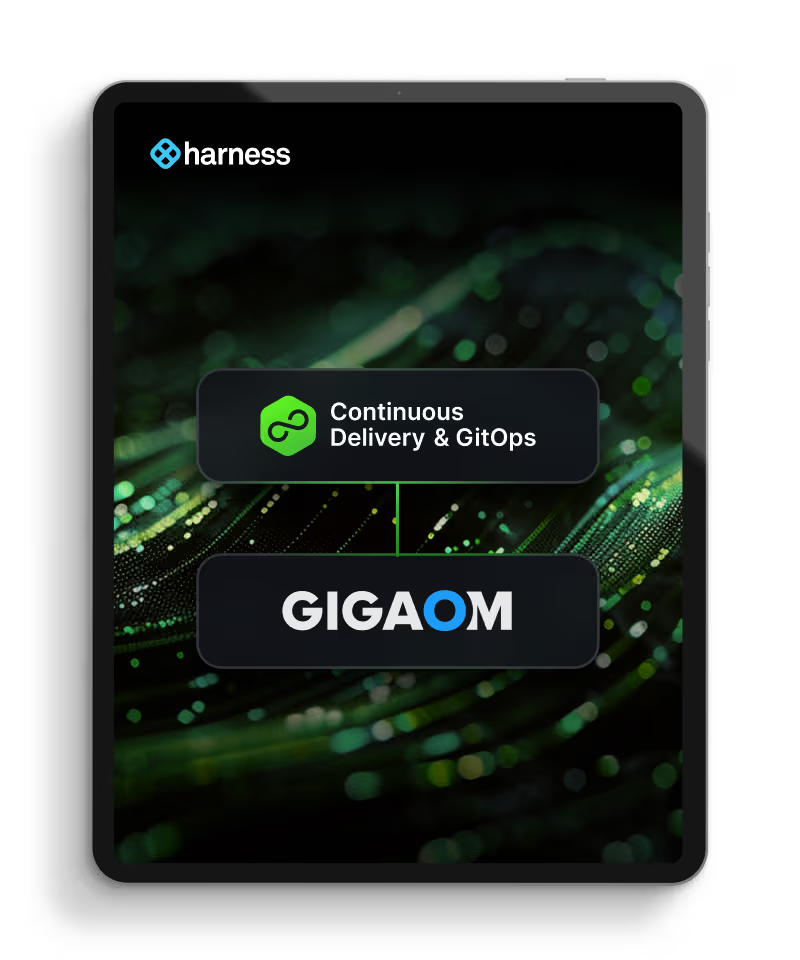
For the last few weeks, the engineering team at Harness has been hard at work making deployments easier, faster, and simpler than ever before. Our focus remains on empowering developers and DevOps teams with the tools they need to achieve seamless, efficient, and reliable software deployments. Today, we’re excited to highlight the latest features we’ve rolled out to streamline your continuous delivery pipelines.
Smarter Helm Deployments
Helm Delete Step
Managing Helm deployments just got even more efficient. We’ve introduced a Helm Delete Step, enabling users to delete resources created during a Helm deployment with ease. This ensures that any unnecessary artifacts don’t linger in your infrastructure, keeping environments clean and manageable. Learn more.
Anonymous Authentication for OCI-Based Helm Repositories
We’ve now added support for anonymous authentication for OCI-based Helm repositories, allowing for easier access and improved flexibility when pulling Helm charts from various repositories.
Enhanced Kubernetes and AWS Deployments
Support for Command Flags in the Kubernetes Delete Step
Deleting Kubernetes resources is now more flexible with support for command flags in the Kubernetes delete step. For example, the --ignore-not-found flag allows users to treat a “resource not found” event as a successful delete, preventing unnecessary failures.
AWS ECS & Lambda Tag Management
Tag management has been improved for AWS ECS and Lambda deployments, making it easier to track and manage resources efficiently.
AWS ASG Deployment Steady State Step
We’ve introduced the AWS ASG Deployment Steady State Step, which monitors the progress and completion of the instance refresh process. This ensures better stability and insight into AWS Auto Scaling Group deployments. Learn more.
Improved Failure Detection & Retry Mechanisms
Enhanced ECS Rolling Deployment Failure Detection
We’ve improved failure detection for ECS rolling deployments, helping teams identify issues faster and take corrective actions efficiently. Learn more.
Selective Host Retries for Traditional Deployments
For traditional deployments, you can now retry failed host deployments while skipping hosts where the last deployment was successful with the same artifact. This reduces unnecessary redeployments and speeds up the overall process. Learn more.
More Flexibility in Serverless & Cloud Deployments
Configure Plugin Info to Automatically Pull the Latest Runtime Images
The Plugin Info section defines essential details such as the programming language runtime and Serverless Framework version required for serverless deployments. This ensures users receive the latest version of images, enabling seamless deployments. Learn more.
Azure Web App Deployment Enhancements
We’ve expanded support for non-standard configurations and CLI-based workflows in Azure Web App deployments, giving users more customization options and flexibility.
Google Cloud Functions Library Upgrades
Google Cloud Functions now support Google Custom Build Service Accounts with a library upgrade, improving security and compatibility.
Artifact Selection for AWS ECR in Mexico Region
Teams operating in Mexico can now select artifacts from AWS Elastic Container Registry (ECR), improving cloud deployment capabilities for global users.
Open Source Contributions
Go Template CLI Library
We’ve open-sourced a Go template CLI library to help developers efficiently render Go templates. Check it out on GitHub.
Usability Improvements
Clickable URLs in Approval Messages
Users can now interact with clickable URLs directly in approval messages, making it easier to access relevant information and take action faster.
Improved Rancher Connector
We’ve enhanced the Rancher connector to display names instead of IDs, making it more user-friendly and intuitive.
Next Steps
These new features represent our continued commitment to simplifying deployments and providing teams with powerful automation tools. Stay tuned as we continue to push the boundaries of continuous delivery innovation!
What’s your favorite new feature? Let us know how these improvements are making a difference in your deployment workflows!
To keep up to date with our feature releases, check out our release notes.
If you want to take a look at what features are coming out next, take a look at our roadmap.
For more information on Harness CD go to:

